Bipolar Disorder
What is Bipolar Disorder?
Mind Weavers, we provide expert and compassionate care for individuals with Bipolar Disorder. Our comprehensive approach helps you manage mood swings and achieve balance in your life. Through personalized treatment plans, including therapy and medication management, we support your journey to stability and well-being.
We focus on treating the whole person, combining psychotherapy with medical interventions to address both emotional and physical aspects of the condition. Our empathetic team is dedicated to guiding you every step of the way, ensuring you feel supported and understood.
Regain control and find balance with Mind Weavers—where your mental health is our priority.

Symptoms of Bipolar Disorder
Manic/Hypomanic Episode Symptoms:
- Increased energy, activity, and restlessness
- Excessively “high,” overly good, euphoric mood
- Extreme irritability
- Racing thoughts and talking very fast, jumping from one idea to another
- Distractibility, inability to concentrate well
- Little sleep needed
- Unrealistic beliefs in one’s abilities and powers
- Poor judgment
- Spending sprees, impulsive behavior
- Increased sexual drive
- Abuse of drugs, particularly cocaine, alcohol, and sleeping medications
- Provocative, intrusive, or aggressive behavior
Depressive Episode Symptoms:
- Lasting sad, anxious, or empty mood
- Feelings of hopelessness or pessimism
- Feelings of guilt, worthlessness, or helplessness
- Loss of interest or pleasure in activities once enjoyed
- Decreased energy, a feeling of fatigue or being “slowed down”
- Difficulty concentrating, remembering, making decisions
- Restlessness or irritability
- Sleeping too much or can’t sleep
- Change in appetite and/or unintended weight loss or gain
- Chronic pain or other persistent bodily symptoms not caused by physical illness or injury
- Thoughts of death or suicide, or suicide attempts
Treatment for Bipolar Disorder

Treatment can help many people, including:
- Medications: Mood stabilizers, antipsychotic medications, antidepressants, and anti-anxiety medications.
- Psychotherapy:Cognitive-behavioral therapy (CBT), Interpersonal Social Rythm Therapy (IPSRT) psychoeducation, and family therapy.
- Lifestyle Changes: Regular exercise, maintaining a regular sleep schedule, healthy eating, and avoiding alcohol and drugs.
You've taken the first step now let us help you find the right support
Recognizing Clinical Depression
– Lasting sadness
– Loss of interest in most activities
– Constant fatigue or low energy
– Negative thoughts
– Feelings of worthlessness, hopelessness, or guilt
– Difficulty concentrating on daily tasks
– Changes in eating and sleeping patterns
– Restlessness or irritability
– Physical aches and pains without a clear cause
– Thoughts of death or suicide
Signs Your Child
Needs to See a Child psychiatrist
Recognizing when your child may need to see a psychiatrist is crucial for addressing their emotional and mental well-being. Here are some signs that may indicate it’s time to consider seeking help from a Child Psychologist in Calicut:
- Your child is dealing with a significant change or a stressful situation, like bullying, a health issue, divorce parents, or a move to a new city or school.
- Your child's mental, emotional, and behavioral problems seem to be getting worse over time instead of better.
- Your child or family has experienced trauma, such as a death, an accident, or abuse.
- Your child encounters challenges when it comes to forming and maintaining friendships.
- You notice big notable shifts in your child's temperament and behavior.
- They often have trouble with their behavior in school.
- Your child is worrying to much for trivial things
- Your child's grades are dropping.
Common Conditions Addressed at Our Center
Clinical child psychology is a field dedicated to researching, evaluating, and addressing a broad spectrum of interconnected biological, psychological, and social challenges encountered by children.

ANXIETY
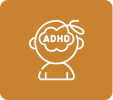
ADHD

DEPRESSION

AUTISM

LEARNING PROBLEMS

BEHAVIOURAL PROBLEMS

ADJUSTMENT PROBLEMS

STRESS
At Mind Weavers, our Child Psychologists are well-versed in the latest evidencebased interventions, providing personalized counseling to address the unique needs of each child.
Skills and Procedures Utilized
Clinical child psychology encompasses a wide range of procedures and skills addressing your child’s needs, including:
- Assessment (e.g., psychological, intellectual, cognitive, and behavioral evaluation).
- Intervention (e.g., psychotherapy and applied behavior analysis).
- Prevention program development (e.g., school readiness,bullying, addictions, obesity).
- Consultation with transdisciplinary team
- Evidence based Practices

Services Offered By Our Center
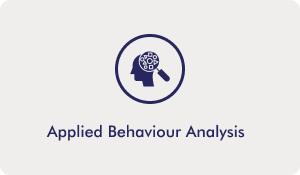


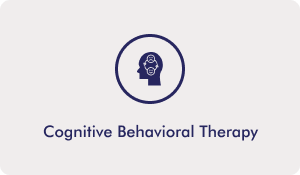
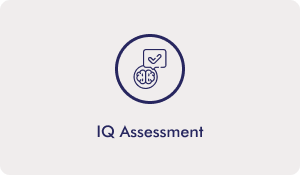
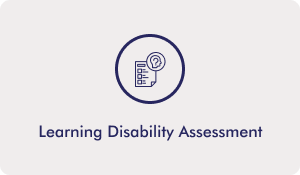


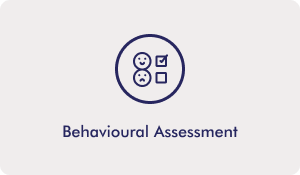
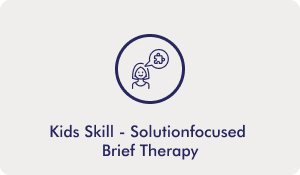
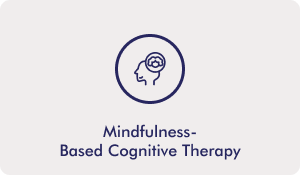
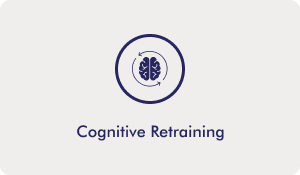




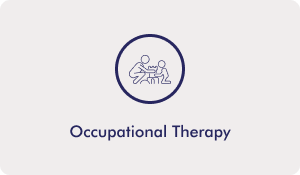
These services are administered by experienced and compassionate clinical psychologists and therapists that ensure your child receives the care and support they need to lead healthier and more fulfilling lives.
FAQs on Bipolar Disorder
The exact cause of bipolar disorder is unknown, but it is believed to be a combination of genetic, biological, and environmental factors. Family history, brain structure and function, and stressful or traumatic events can contribute to the development of the disorder.
Bipolar disorder is diagnosed by a mental health professional based on a thorough clinical evaluation, which includes discussing symptoms, medical history, and family history. There are no specific blood tests or brain scans to diagnose the condition.
Supporting someone with bipolar disorder involves:
– Encouraging them to seek professional help
– Being patient and understanding
– Learning about the disorder to better understand what they are going through
– Helping them adhere to their treatment plan
– Offering emotional support and listening without judgment
Mania is a more severe form of high mood with significant functional impairment, possible psychosis, and the need for hospitalization. Hypomania is a milder form of mania without psychosis and with less impact on daily functioning.
Untreated bipolar disorder can lead to severe consequences, including impaired relationships, poor job or school performance, legal or financial problems, substance abuse, and an increased risk of suicide.
Managing bipolar disorder involves following the treatment plan, taking medications as prescribed, attending therapy sessions, maintaining a healthy lifestyle, recognizing early signs of mood swings, and avoiding alcohol and drugs.
Bipolar disorder tends to run in families, suggesting a genetic component. However, not everyone with a family history of bipolar disorder will develop the condition, and not everyone with the disorder has a family history.
If you think you might be depressed:
– Reach out to a mental health professional for help
– Talk to trusted friends or family members about your feelings
– Engage in activities you enjoy, even if it’s difficult
– Take care of your physical health through exercise, nutrition, and sleep
– Avoid alcohol and drugs, which can worsen depression
Help for bipolar disorder can be found through:
– Mental health professionals, such as psychologists and psychiatrists
– Mental health clinics or organizations
Mind Weavers for Adult Psychology -
Why We're Different?
✨Experience:
Mind Weavers stands out in the field of adult psychology for several reasons. Our team of licensed professionals brings a wealth of experience in dealing with adult psychological issues. We understand that adulthood is a time of significant transition and are committed to helping you navigate this period with empathy and expertise.
✨Understanding Issues from The Root:
We support a comprehensive strategy for mental health. Hence, it means we don’t just focus on your symptoms; we explore the root causes of your challenges. Therefore, by addressing these underlying issues, we aim to provide long-lasting solutions that improve your overall well-being.
✨Supportive Environment:
Another reason to choose Mind Weavers is our commitment to creating a supportive environment. We know that discussing mental health can be difficult, which is why we prioritize creating a safe, non-judgmental space. Our goal is to make you feel comfortable and heard, ensuring that you can openly discuss your concerns and challenges.
✨Flexible Treatment Plans:
Additionally, we offer flexible treatment options tailored to fit your lifestyle. So, whether you prefer in-person sessions or online consultations, we make it easy to access the help you need. Our flexible scheduling and various therapy modalities ensure that you can find the right fit for your needs.
Therefore, take the first step towards a healthier adulthood by choosing Mind Weavers. Your mental well-being deserves the best care, and we’re here to provide it.
Choosing Mind Weavers for
Your Child's Well-Being
At Mind Weavers, our aim is to have a happy, playful, and confident child.
We prioritize your child’s well-being and offer top-quality mental health services to support their growth and happiness. Our dedicated professionals including child psychologists, therapists, and counelors help children overcome challenges, develop crucial life skills, and thrive emotionally.
At Mind Weavers, you’re choosing more than specialized services; you’re selecting a caring and nurturing environment that fosters resilience, self-assurance, and a positive outlook.


